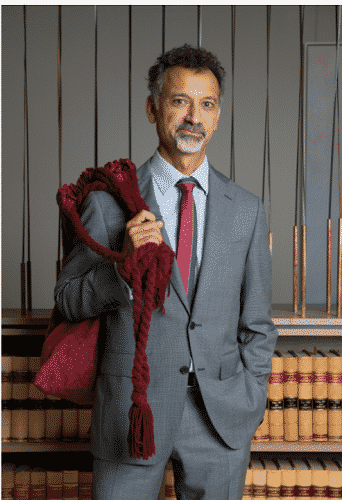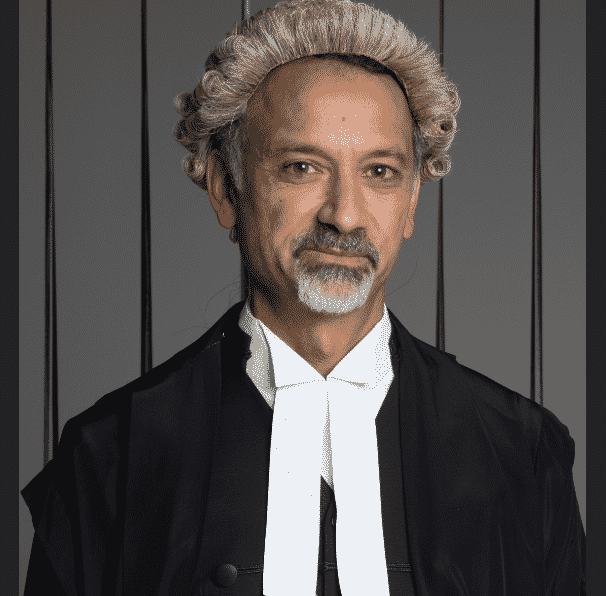“Mr. Dhanji, what does being appointed as a judge of the New South Wales Supreme Court mean to you?’
“Fundamentally, it means that I’ve been entrusted to perform an important public service. To serve the community well; as best as one can.”
From the opening moments of our conversation, it was clear that Hament Dhanji SC would not spend any time talking himself up.
He has every reason to, though: on September 20, he will become the first person of Indian origin to join the bench of the NSW Supreme Court. This appointment is naturally a considerable highlight in a legal career spanning over thirty years which has included appearances in the High Court, approximately 350 appearances in the Court of Criminal Appeal , appearances in criminal trials and sentencing, representation of clients before various inquiries and appointment as a prestigious ‘Senior Counsel’ in 2010.
Yet, for the Meadowbank Boys’ High School and Sydney University graduate, his main focus at this time is on the demands of his upcoming job and the fairness of the court system in the eyes of the community.
“As a judge, I don’t make the laws; I’m there to apply them. In doing so, there’s often a need to translate fact situations into outcomes, to put everything together and balance them in order to provide a result that is fair to all interested persons.
If you don’t, you obviously get a feeling of discontent from one or more trial participants or the community more broadly. And that’s something you want to avoid to the extent it is possible – it’s clearly not in the interests of society or the disgruntled party.”
In his new role, the (soon to be Justice) Dhanji, who is of Gujarati background, will have opportunity to ensure that the diverse community will be increasingly represented at the highest levels of the industry. Even though the profession is improving in this respect, with the NSW Law Society championing important social justice issues more actively and the number of female professionals entering the industry continuing to rise, court cases continue to play out under only a small number of judges of colour. As Australian society sees a greater shift towards multiculturalism and more inclusive ways of thinking, the chance to see this reflected in our public legal system is something Mr. Dhanji responds to positively.
READ ALSO: Priyanka Banerjee makes history at Melbourne Law School

“It’s all bound up in the classic aphorism that justice must not only be done, it must be seen to be done. Any progress is made through understanding, and the courts as an institution are improving their understanding, in part, as a result of the lawyers themselves becoming more diverse. There’s an enormous range of cultural backgrounds in the people appearing as advocates before courts, and they perform a really important role in educating the judiciary through the evidence that they present and the arguments they make. And hopefully over time, the diversity in the profession will continue to grow, and to filter through to the judiciary.”
Thankfully, the lessons Mr. Dhanji learned in this respect during his time in the law – which included stints with Legal Aid NSW, and as a barrister taking briefs to appear for clients of the Western Aboriginal Legal Service – won’t be lost when he dons his new judicial robes.
“Through that sort of background, you gain insights that you carry throughout your whole career – and if you ultimately find yourself as a member of the judiciary, then into that role too.”
“Everything I’ve said means that when a judge is looking at an accused individual who might be from a particular racial group, they’re not seeing that person only as a member of that particular group. They understand that they come from a broader community which is made up of all sorts of people.”
What also won’t be lost on him is the power he has in upholding the concepts of community and fairness he cares about so deeply. Mr. Dhanji elaborated, “The more reflective the court appears to be of the community it serves, the greater the public confidence in the system and its fairness will be.”
For early-career lawyers and law students, Mr. Dhanji’s advice was concise, but powerful.
“Protect your reputation at all costs. Because in the legal profession, your reputation is everything.”
Yet, when asked to list career highlights, Mr. Dhanji chose not to emphasise trial victories or other legal successes. In line with his community-focused mindset, his most memorable moments represent goals we can all aspire to achieve: “Having made great friendships with my colleagues and maintained a happy and satisfying life outside of the law.”
After Hours
Currently reading: Guns, Germs and Steel by Jared Diamond
Watching: I’m somewhere down the pecking order when it comes to deciding what’s on the family television (but right now, the films of Alfred Hitchcock, and US sitcom Community).
READ ALSO: Molina Asthana appointed Vice President of the Law Institute of Victoria
Link up with us!
Indian Link News website: Save our website as a bookmark
Indian Link E-Newsletter: Subscribe to our weekly e-newsletter
Indian Link Newspaper: Click here to read our e-paper
Indian Link app: Download our app from Apple’s App Store or Google Play and subscribe to the alerts
Facebook: facebook.com/IndianLinkAustralia
Twitter: @indian_link
Instagram: @indianlink
LinkedIn: linkedin.com/IndianLinkMediaGroup





